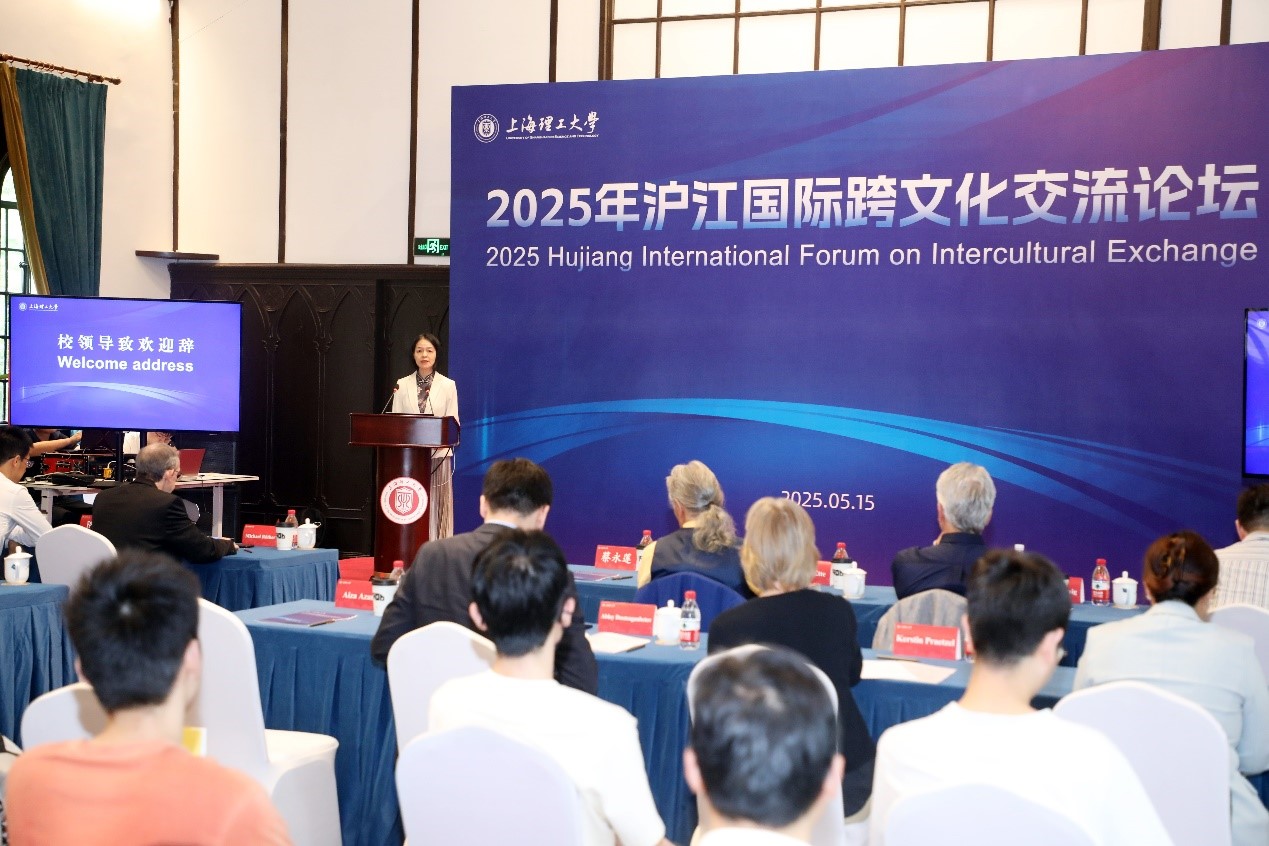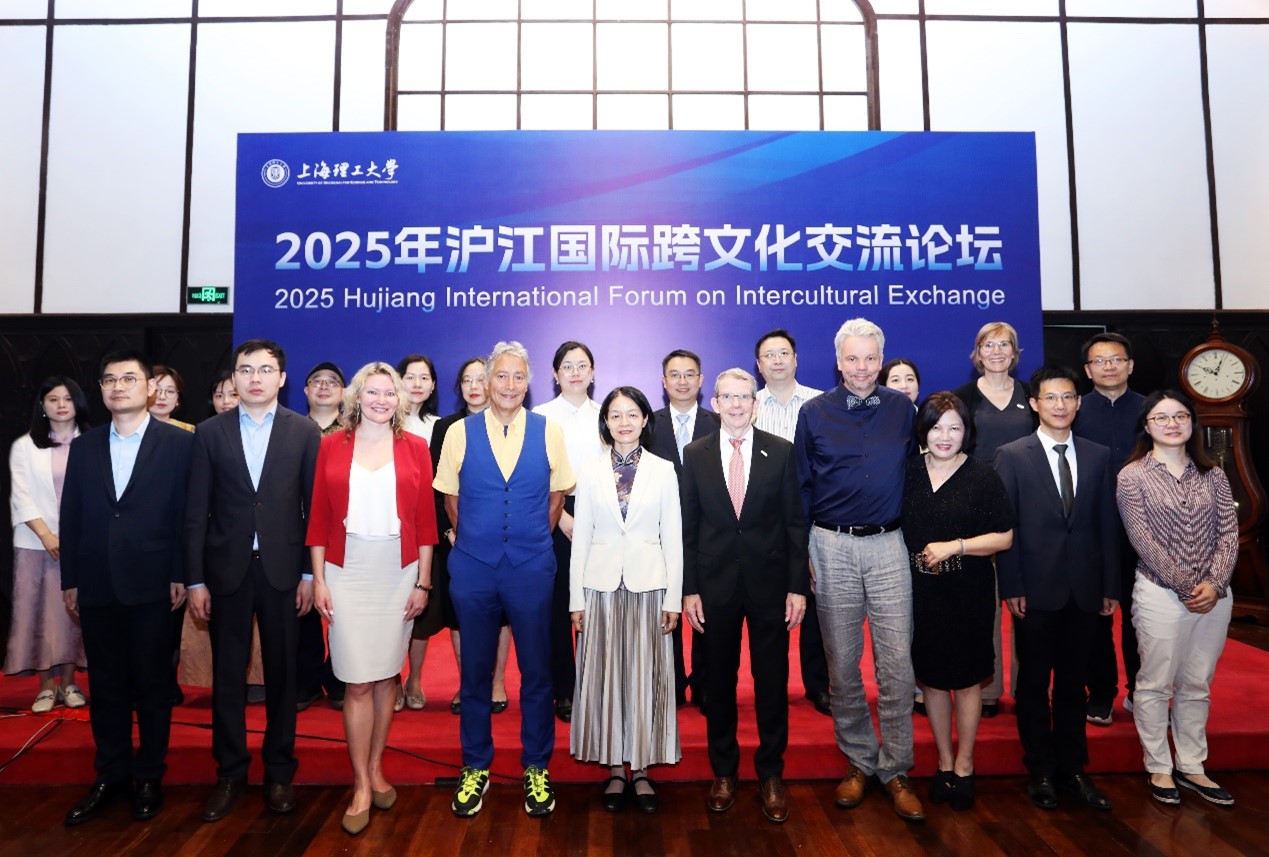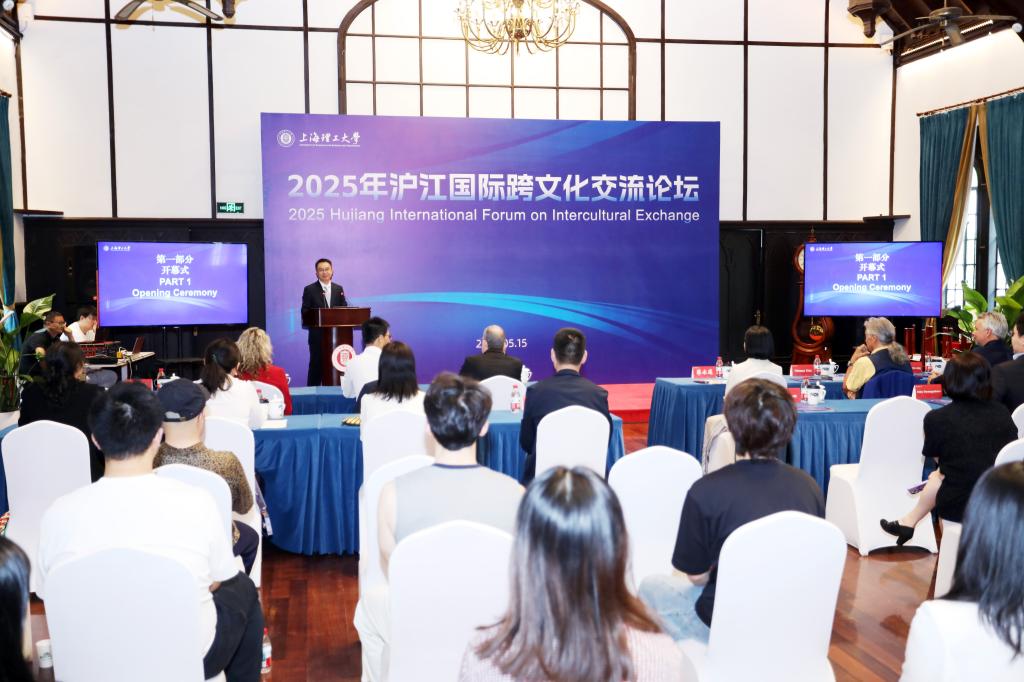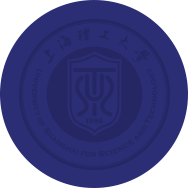On May 15, “2025 Hujiang International Forum on Intercultural Exchange - New Perspectives on Urban Cooperation between Cooperative Universities Along the Sino-German Silk Road in the Fields of Culture, Economy and Technology” hosted by University of Shanghai for Science and Technology (USST) was held in the auditorium hall on the campus. Cai Yonglian, member of the Standing Committee of the party committee and Vice President of USST, Ottmar Ette, academician of the Berlin-Brandenburg Academy of Sciences, Marcus Hernig, renowned sinologist and scholar of Germanic languages, Ye Miaomiao, deputy director of the Representative Office of the City of Hamburg in China, Michael Röther, Chinese Affairs Director of the Hamburg University of Applied Sciences, Natalia Ribberink, head of the German party of the major of international trade in Sino-German College, USST, Aiza Azam, Pakistani researcher, Ablay Dosmaganbetov, Kyrgyz researcher, Dr. Chen Qi, Director of International Affairs Office of USST, Dr. Xu Jingwei and Geng Xiuli, Deputy Directors of International Affairs Office of USST, Zhu Huifeng, Vice Dean of Hujiang College, Yang Huinan, Vice Dean of Sino-German College (SGC), Xu Fang, Deputy Secretary of Party Committee and Vice Dean of SGC as well as more than 60 famous experts, scholars and outstanding young students in the field of intercultural communication research domestically and abroad attended the forum. The opening ceremony was presided over by Mr. Fan Zhengfei, Secretary of Party Committee of Sino-German College.

Cai Yonglian firstly expressed her warm welcome and heartfelt thanks to all the guests, introducing USST's initiative in docking with the national strategy, focusing on key areas such as intelligent manufacturing and biomedicine, and cultivating high-level professionals for the “One Belt, One Road” co-construction countries. The university has also made efforts to build “Hujiang Culture Park” as a landmark of international exchange, continue to deepen the mode of on-site internationalized school running, and promote the quality of open school running to a new height. She hoped that this forum would build a platform for in-depth exchanges among the guests, and jointly discuss the cooperation paths between China and Germany and the countries along the Silk Road in related fields. This feast of ideas, which originated from friendship, flourished in academic exchanges and became a practical cooperation, will surely achieve fruitful results.

The topic of first half of the session is Passages between East and West. Marcus Hernig used “Hanseatic League and the Silk Road convergence: the history and prospects of cultural and academic exchanges between Eurasian cities” as the theme, systematically introduced the history of cultural and academic exchanges between European and Asian cities, noting the role of hub cities such as Shanghai and Hamburg as bridges in intercultural dialogue. Ottmar Ette, on the other hand, focused on Alexander von Humboldt's intercultural thoughts and discussed the importance of intercultural city exchanges between Europe and Asia. In the context of Hamburg-Shanghai friendship city cooperation, Miaomiao Ye emphasized the importance of exchanges between Hamburg, the Hanseatic League and Eurasian cities.
In the second half of the session “From the Silk Road to Hamburg and Shanghai”, Michael Röther and Chen Qi analyzed the prospects of Eurasian-Asian cooperation in teaching and research between cities and universities from the Western and Eastern perspectives respectively. Aiza Azam and Ablay Dosmaganbetov shared the current status, prospects and needs of East-West international cooperation in teaching and research from Pakistani and Central Asian perspectives respectively, while Natalia Ribberink introduced the current situation of economic cooperation, logistics and trade development between the major hub cities of the Silk Road, and explored the role of Hamburg as a Hanseatic city with a long tradition of Asian trade.
In the Wrap-up session, the participants exchanged views on “Ways to International und Intercultural Exchange along the Silk Road - Discussion on the Development of International cooperation along the Silk Roads following the Hanseatic Idea”.
With the deepening development of globalization, the importance of international cross-cultural exchanges has become more and more prominent. This forum brings together experts and scholars from China, Germany and many other countries in Europe and Asia to discuss the urban cooperation in the fields of culture, economy and technology among the cooperative universities along the Silk Road through the combination of historical retrospection and contemporary practice, which not only establishes a high-level dialog platform for scholars of the countries along the Silk Road for intercultural exchanges, but also injects new impetus into the high-quality construction of the “One Belt, One Road” together.



 Home
·
News & Events
·
Content
Home
·
News & Events
·
Content

